Uncategorised

|
Northern Sustainable Development Forum (the Forum) is a permanent international expert platform for discussing the issues and prospects of sustainable development of the Arctic and the North.
The main idea of the Forum is to join global creative forces in solving the problems of sustainable development of the Northern and Arctic regions.
In 2015, the UN General Assembly adopted the 2030 Agenda for Sustainable Development that included 17 Sustainable Development Goals.
The first Forum was held in 2019 and discussed a wide range of the regional sustainable development issues in the Arctic and the North to identify the priority directions and themes for the next years. The themes of the Forums are chosen based on the sustainable development goals, with Goals 8 and 17 being present at all Forums.
In 2020, the main theme of the Forum was the development of transport infrastructure in the Arctic and the North (Goal 9).
The main theme of the 2021 Forum: Climate Change and Permafrost Response (Goal 13).
The main theme of the 2022 Forum: Energy of the Arctic: New Challenges – New Solutions (Goal 7).
LOCATION: Yakutsk, Sakha Republic (Yakutia), Russian Federation
DATES: September 24-27, 2024
ORGANIZERS OF THE FORUM: • The Northern Forum • Government of the Sakha Republic (Yakutia) • Ammosov North-Eastern Federal University • Andrey Melnichenko Charity Foundation • Arctic State Institute of Culture and Arts • North: Sustainable Development Territory Research and Educational Center • Melnikov Permafrost Institute SB RAS
DIRECTORATE: The Northern Forum Secretariat
OPERATOR OF THE FORUM: Yakutia Congress Center
KEY THEME OF THE 2024 FORUM:
Arctic and northern regions of the world are facing major challenges associated with rapid climate change and degradation of natural ecosystems, growing threats to the populations of many flora and fauna species, and increased industrial development while preserving the traditional way of life of indigenous peoples.
What do we mean by the resilience of the Arctic and the North? Does this concept concern only human-influenced natural ecosystems or are we considering it from a holistic perspective? First of all, we are talking about a human living in these harsh lands and treating the environment carefully, knowing how fragile the nature of the Arctic and the North is and how long it takes to recover from wounds. The resilience of human and nature is closely related to the development of regions, cities, villages and indigenous communities.
Which development path will ensure harmony between exploration and conservation? What is the role of each person, urban or rural settlement, and region in improving the quality of life, creating comfortable conditions for residents, taking into account the need to mitigate environmental damage, preserve and enrich biodiversity? Are there successful practices in the world that can be applied to various extents in the conditions of the Arctic and the North? To secure true resilience of the Arctic, as a macro-region that affects the life of the entire planet, it is necessary to ensure an effective and constructive synthesis of government, business, science, education, and indigenous communities.
The main theme corresponds with SDG 11.
FORMAT
The Forum will be a hybrid event (offline/online).
Simultaneous Russian-English interpreting is provided.
Formats of the Forum’s events:
ARCHITECTURE OF THE FORUM
The Forum’s detailed agenda will be posted on the website after the Forum’s Directorate has reviewed and the Organizing Committee has approved the proposals on arranging the events within the Forum. The Organizing Committee reserves the right to select the events to the Forum’s agenda.
PROPOSING THE EVENTS
The applications for the events can be submitted on the Forum’s official website. The events have to address the main theme or the themes of the main blocks.
Application deadline – September 1.
No applications can be submitted after this date.
The organizers shall be responsible for making the agenda, the lists of speakers and participants, and for collecting the materials.
The agenda, the lists of speakers and approved events shall be made before September 15.
The organizers of the events shall coordinate their activities with the Forum’s Directorate in terms of the events’ agenda and with the Forum’s Operator in terms of technical arrangements and logistics.
The Operator of the Forum shall identify the venues and arrange the required equipment and simultaneous interpreting (as required), as well as centralized booking of accommodation and transportation.
TERMS OF PARTICIPATION
All participants must pay a registration fee. To this end, a free participation quota is given to the member regions and business partners of the Northern Forum:
Regions – 20 quotas
Business partners – 2 quotas
Northern Youth Forum – 20 quotas
Giving free quotas to the participants from the NF member regions shall be coordinated with the NF Regional Coordinators.
For students and postgraduate students, the participation in the Forum is free.
Registration fee
Personal attendance
The registration fee is RUB 5000; it includes handout materials, transfers from and to the airport, coffee breaks and sightseeing.
For early birds, the full package is RUB 3500.
Online participation
The registration fee for the Russian Federation nationals is RUB 1000.
The registration fee for other countries’ nationals is USD 50.
For early birds, the registration fee is RUB 600 and USD 35 respectively
The registration fee payment procedure
The registration fees in RUB can be paid to the account of the Northern Forum Academy, on whose basis the Northern Forum Secretariat – Forum’s Directorate operates.
The registration fees in USD can be wired to the account of the Arctic Portal (Akureyri, Iceland), operating as the Northern Forum Office in Iceland.
The registration fees from those attending personally can be paid in cash at the Northern Forum Secretariat – Forum’s Directorate.
REGISTRATION
All participants of the Forum shall register on the official website www.nsdf.ru by filling in an online form.
The registration is open until the Forum’s closing.
The bank details of the Northern Forum Academy and the Arctic Portal are given in the registration area of the website.
Early bird registration: before September 1
PARTNERS
All organizers of the Forum’s events become its partners. The partners’ logos are placed on the Forum’s website and materials.
General Partner/Sponsor
Package rate – RUB 500 000
Official Partner/Sponsor
Package rate – RUB 100 000,00
Partner application deadline: September 15
MASS MEDIA ACCREDITATION
Mass media shall get their accreditation on the Forum’s official website. All accredited mass media become the Forum’s information partners.
The status of Information Partner entails the following bilateral commitments:
From the organizers of the Forum:
From the Information Partner:
Various combinations of the listed commitments can be discussed individually.
The organizers of the Forum may select one General Information Partner from the accredited mass media.
The status of General Information Partner entails the following bilateral commitments:
From the organizers of the Forum:
The commitments of the General Information Partner are agreed individually with the Forum’s Operator when preparing a Contract.
PUBLISHING THE MATERIALS
It is planned to publish the Forum’s materials in the scientific journal of Ammosov North-Eastern Federal University. The publication cost and requirements will be published on the Forum’s website.
Publications are also possible in the journals of the Forum partners.
Contacts
The Northern Forum Secretariat 677000, Russian Federation,
Yakutia Congress Center 677027, Russian Federation, |
|||||||||||||||||||||||
|
|
Sorry, but the page you are looking for might have been removed, had its name changed, or is temporarily unavailable.
We apologize for the inconvenience.
Please try the following:
- If you typed the page address in the Address bar, make sure that it is spelled correctly.
- Use our sitemap to find the content you are looking for
- Click the Back button in your browser to try another link.
- In the case of a broken link, please report it to the Arctic Portal IT department
REGIONAL COORDINATORS COMMITTEE MEETING
Akureyri, Iceland, November 3-6, 2014
Northern Forum Regional Coordinators Committee Meeting - Draft Program_ENG
Northern Forum Regional Coordinators Committee Meeting - Draft Program_RUS
Northern Forum Regional Coordinators Committee Meeting - Registration Form_EN
Northern Forum Regional Coordinators Committee Meeting - Registration Form_RUS

MOSCOW, May 23 - RIA News. Moscow is in favor of forming an international partnership to preserve a zone of peace in the Arctic, Nikolai Korchunov, ambassador-at-large for the international cooperation in the Arctic, told RIA Novosti. "We are not in favor of confrontation and rivalry, but in cooperation and complementary efforts of each other, in forming an international partnership, including within the framework of the Arctic Council, in the interests of preserving the Arctic region as a zone of peace, stability and low military tension" he declared.
The diplomat, commenting on the statements of US officials, stressed that "Russia is pursuing an open, consistent policy in the region, based on the norms of international law, with a broad agenda for international cooperation in the interests of sustainable development, open, including to the participation of the United States." Earlier, US Secretary of State Mike Pompeo said that Washington was concerned about the "Russian claims to international waters of the Northern Sea Route, including recently announced plans to connect it with the Chinese Sea Silk Road. He also declared that the requirements of Moscow were" illegitimate "in order for the Northern Sea Route to go through the ships other countries, calling them "part of Russia's overall aggressive behavior in the Arctic." In turn, US National Security Advisor to the President John Bolton said Wednesday that the United States would soon establish a year-round presence in the Arctic, when new American icebreakers will be put into operation. According to him, the US "coast guard will take the first step in restoring America’s leadership in the Arctic, which has long been ignored." The US Coast Guard, he said, will help Washington fight off Russia's growing influence in the Arctic and resist China’s unlawful claim to the status of a near-arctic country.

As we all know, the Arctic is one of the most important energy sources in the world. According to the U.S. Geological Survey (USGS) the Arctic has about 13 % (90 billion barrels) of the world´s undiscovered conventional oil resources and 30 % of its undiscovered conventional natural gas resources. On the other hand, Arctic Regions are ideal source for renewable energy like hydro power, wind power and geothermal power. In coastal regions, tidal power is also available. In the most sparsely populated Arctic the main energy source is still diesel oil and in the northernmost regions of the Nordic countries the amount of renewable energies is about 90 % of energy and it is still increasing in the near future.
Turning the whole Arctic to use renewable energy is important part of the implementation of Paris Climate Agreement. It is also a big challenge for the regions, but worth of doing. Together with increasing renewable energy together with the energy efficiency, an important component for Arctic regions is formed, which aim is to develop their own communities. One way to solve these problems is making the regional energy strategy. This was also done in Lapland by Regional Council, back then, when the first regional energy strategy was accepted in 2009.
As an example, according to Lapland´s Energy Strategy, the trend in future’s energy consumption is above all dependent on the development of industry and the service sector in the Lapland. The future development such as the investments in the Tornio steel mill, mining projects and growing tourism, will increase energy consumption significantly. More renewable and low-emission energy production, especially, is also needed in Finland. On the other hand, energy efficiency and new technology solutions should be developed further. Lapland’s large energy resources make it possible to increase energy production in a sustainable way and the northern conditions lay a good base for development of new solutions and local know-how both in energy production and consumption.
Sustainability and self-sufficiency are commonly agreed visions in Lapland’s energy production. The aim is to utilize Lapland’s large energy resources, in order to develop the Lappish knowledge and regional economy and energy solutions, which supports Lapland’s vitality. Lapland’s investments are directed to competitive energy solutions, which also support means of livelihood and regional economy, making use of northern abilities and creativity. Energy resources are utilized respecting the environment and Lapland’s unique nature. Energy production in the future will also be more diverse based on several different production technologies and fuels, so that all the potential of the sustainable Arctic energy production will be utilized. The objective is that Lapland’s own know-how and business activities are supported so, that in the future Lapland will be known for its role as a developer and user of energy production and saving solutions, which are suitable for northern conditions.
Impacts on carbon dioxide emissions depend heavily on the quantity of bioenergy, which is used to replace the peat and coal. Without a huge increase in the use of biofuels, the carbon emissions both from power and heat production will be increasing in Lapland slightly from the current level by the year 2030. Efficient utilization of biofuels can reduce emissions by about 30–40 % from the current level. Referring to the Lapland’s regional energy strategy, by increasing the production of local renewable energy, supports this also significantly the aim of achieving the objectives of Finland’s and EU’s climate and renewable energy policy. However, in 2017 the LULUCF-process by the EU has complicated the Finnish plans and strategies to use biomass as source of energy. According to the EU, emissions of biomass used in energy will be both filed and counted for each Member State's 2030 climate commitments.
Key projects and actions in the Lapland´s Energy Strategy are bioenergy, use of biomass, bio fuels, woodchips and pellets, sustainable use of peat, wind power, hydro power and promotion of energy efficiency. The strategy underlines also the importance to develop wind power technology in Lapland, upgrading existing hydro power plants and building new plants, better energy efficiency information, energy efficient building and construction, which are sufficient for Arctic conditions and energy transfer and grid networks.
When put into practice, the commitments of the Paris Climate Agreement will be the most important contribution from the Member States in addressing climate change. At the same time, the implementation of the Arctic Council's “Framework for Action on Enhanced Black Carbon and Methane Emissions Reductions” (2015) will provide a much-needed additional measure. Finland encourages projects and actions, which are aimed to reduce emissions, facilitate adaptation, and raise awareness of climate change. The president of Finland, Mr. Sauli Niinistö has recently discussed with president Vladimir Putin and president Donald Trump about the importance of reducing black carbon in the Arctic. Using renewable energy and improving energy efficiency are also good ways to support this important policy.
Timo Rautajoki
Valajaskoski Hydro power plant

Suosiola Bio power plant

Kairatie Bio Power plant

Headline h1
Headline h2
Headline h3
Headline h4
 Test paragraph. Never copy and paste text into the editor from Word, other website, etc and expect it to work correctly. When you do so, many invisible and non-standard html elements invisible to human eye get embedded in the page and from here you'll fail miserably to format anything in any Joomla editor.
Test paragraph. Never copy and paste text into the editor from Word, other website, etc and expect it to work correctly. When you do so, many invisible and non-standard html elements invisible to human eye get embedded in the page and from here you'll fail miserably to format anything in any Joomla editor.
New publication: The European Union and the Arctic – Developments and Perspectives 2010 – 2014 has just become available. The report analyses the policy statements on Arctic issues released from 2010 by the EU institutions and the EU's role-building in the Arctic political framework, notably the Arctic Council. (via Norden) It describes how the EU's role in the Arctic is seen in strategies and policy
The Northern Forum Organisation has established a formal association, the Northern Forum Foundation.
The Northern Forum Foundation operates according to Icelandic Act no. 119/2019 on non-profit organisations, registered in Akureyri, Iceland, operating across borders.
The purpose and objectives of Northern Forum Foundation is to raise funding, fund and support activities and projects that benefit sustainable development and better living for the people and peoples of the North and their societies, including in: education; culture; innovation; responsible business development; empowering the youth; health; science and for the environment; as per the objectives and strategy of the Northern Forum Organisation and as agreed by its members.
The Northern Forum Foundation intends to achieve its purpose and objectives by raising funds based on its merits from the Global international community, private and public, including: individuals; organisations; associations; companies and governments; through funding applications, fundraising campaigns, sponsoring agreements and partnerships based on active communication, outreach activities and events, executed in coherence with the objectives and strategy of the Northern Forum.
Governor of Lapland, Finland, Mr. Mika Riipi, Chair of the Northern Forum Organisation, is the Chair of the Northern Forum Foundation.
The Northern Forum Foundation is hosted by the Arctic Portal.org at Radhustorg 7, Akureyri, Iceland, and managed by directors Mr. Halldor Johannsson and Mr. Vladimir Vasilev, the executive secretary of the Northern Forum Organisation.
For further information please contact:
Halldór Jóhannsson
tel. +3548992828

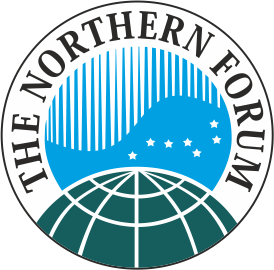
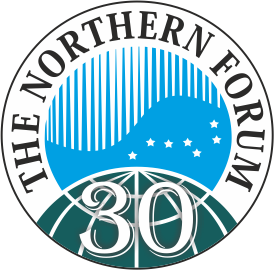
The Northern Forum - 30th Anniversary

Northern Forum Foundation
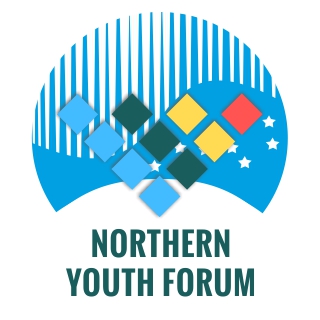
Northern Youth Forum
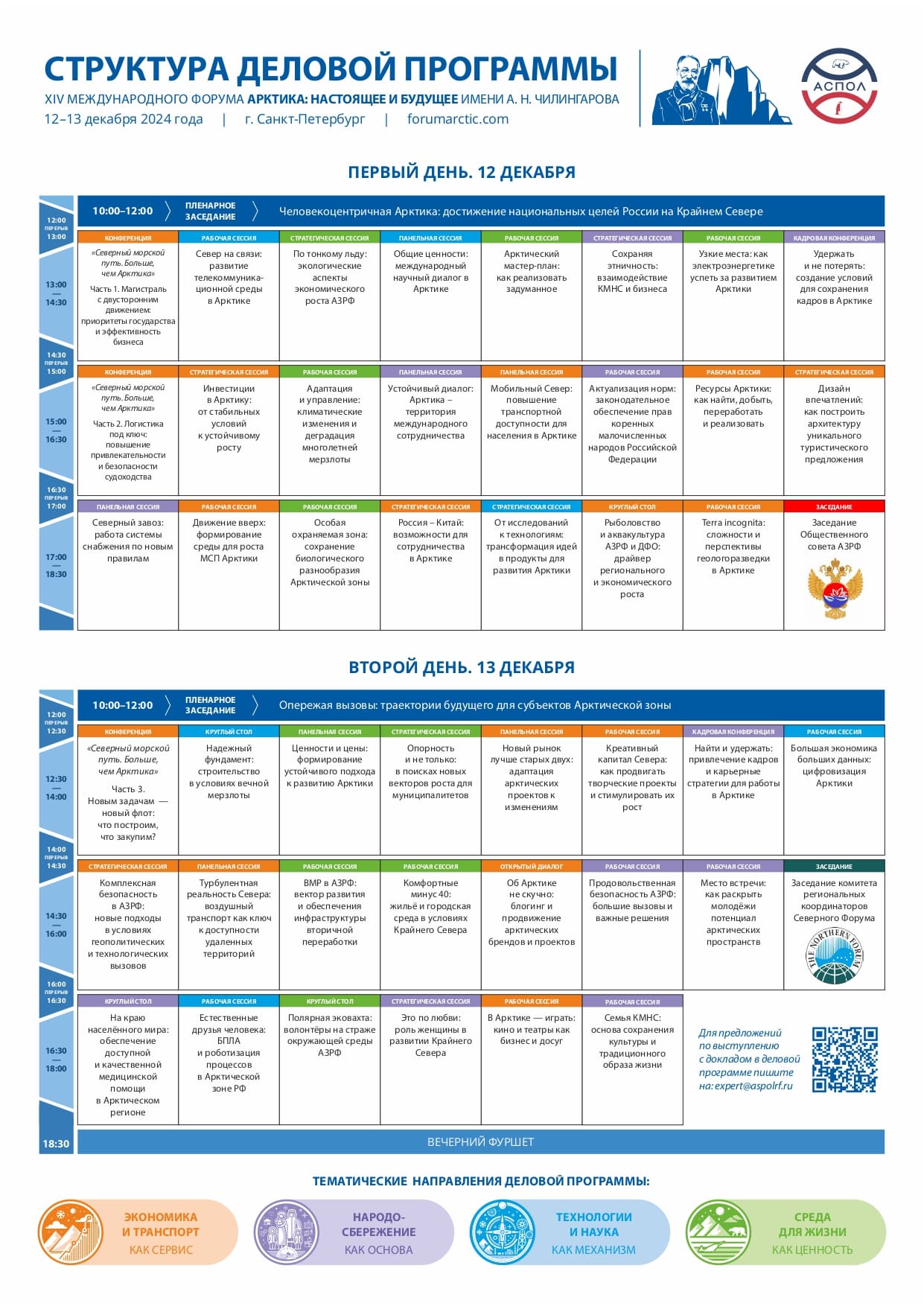
The final meeting of the Northern Forum Regional Coordinators Committee, as agreed with the Organizing Committee of the XIV International Forum Arctic: Today and the Future in honor of Artur Chilingarov, will be held in St. Petersburg on December 13 as part of the Forum.
Edward Alexander - Co-chair, Gwich’in Council International
Elena Manaenkova - Deputy Secretary-General World Meteorological Institute
Jane Rumble - Head of UK Polar Regions Department
Vladimir Vasiliev - Acting Executive Director, Northern Forum
Petteri Vuorimäki - Ambassador and Senior Arctic Official for Finland
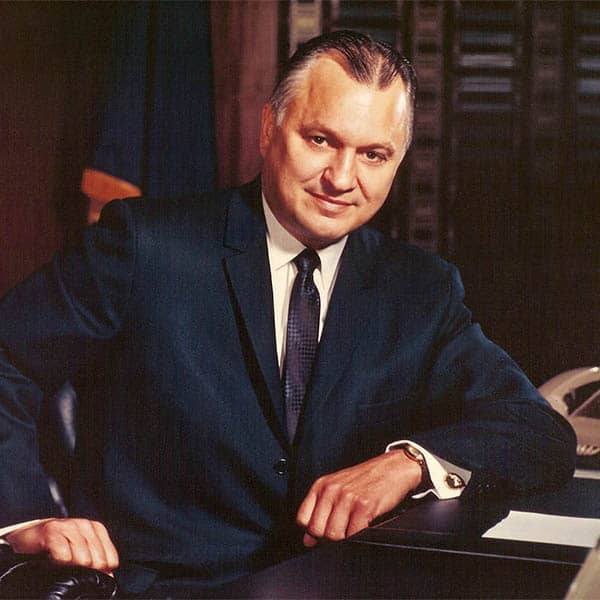
The Northern Forum's Walter Hickel Medal was established in accordance with the Resolution № 169 upon the initiative of the Republic of Sakha (Yakutia) with the purpose of encouraging and appreciating the most distinguished people of the North for their contribution to the development of the regions and the Northern Forum.
Walter Hickel was twice the Governor of Alaska (1966-1969, 1990, 1994), Secretary of the Interior in Richard Nixon's Administration, and the First Chair of the Northern Forum (1992-1994). He made an outstanding contribution to the establishment and development of the Northern Forum. The Northern Forum became the first organization of regions which gave an incentive to the establishment of a number of large international organizations and the beginning of real cooperation in order to achieve sustainable development of the Arctic and the North.
The regulations of Walter Hickel Medal
Walter Hickel Medal Honours List

Mikhail Nikolaev
Sakha Republic (Yakutia), Russia
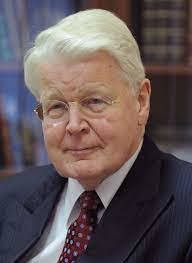
Ólafur Ragnar Grímsson
Iceland

Hannele Pokka
Lapland, Finland

Mead Treadwell
Alaska, USA

Gennady Oleinik
Khanty-Mansyisk Autonomous Okrug-Ugra, Russia
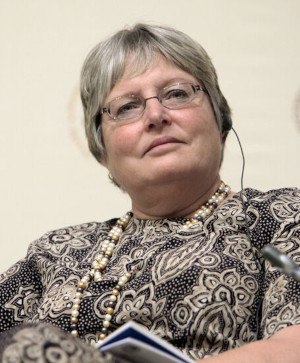
Priscilla Wohl
Alaska, USA

Anastasia Bozhedonova
Sakha Republic (Yakutia), Russia
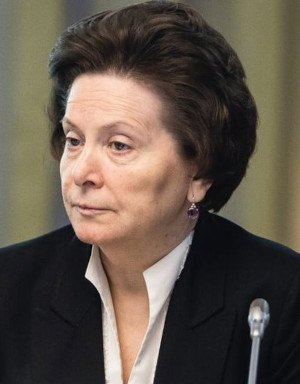
Natalya Komarova
Khanty-Mansyisk Autonomous Okrug-Ugra, Russia

Alexander Pelyasov
Moscow, Russia

Lars Kullerud
Lapland, Finland

Nikolai Nakhodkin
Sakha Republic (Yakutia), Russia

Natalia Slugina
Chukotka Autonomous Okrug, Russia

Halldór Jóhannsson
Akureyri, Iceland

Olga Stytsyuk
Khanty-Mansyisk Autonomous Okrug-Ugra, Russia

Lyudmila Alferova
Khanty-Mansyisk Autonomous Okrug-Ugra, Russia

Timofey Maldanov
Khanty-Mansyisk Autonomous Okrug-Ugra, Russia

Alexander Mazharov
Yamal-Nenets Autonomous Okrug, Russia
{igallery 3-northern-forum-meetings}


